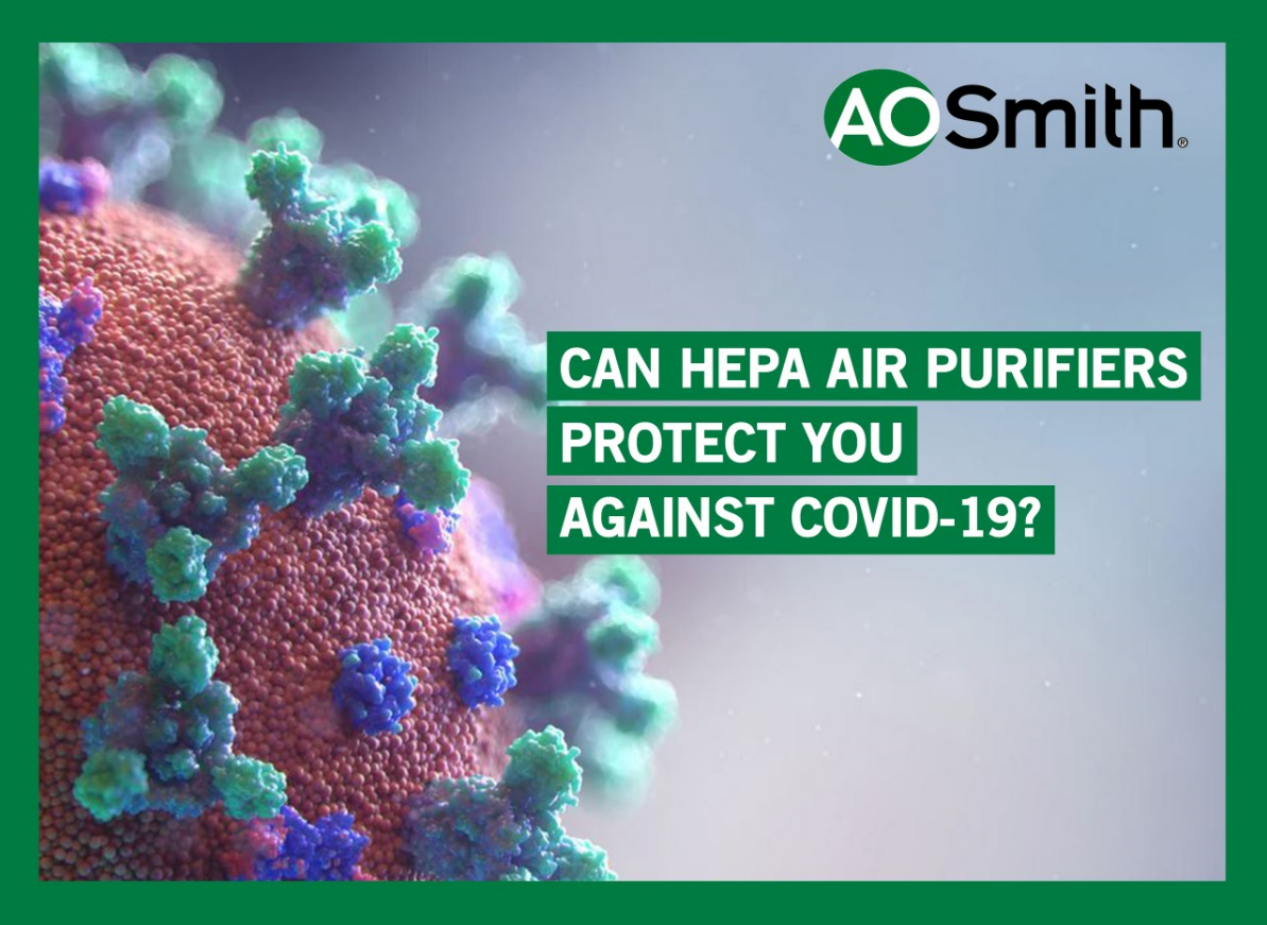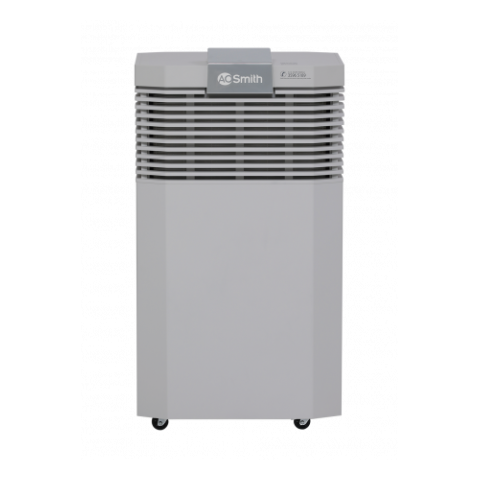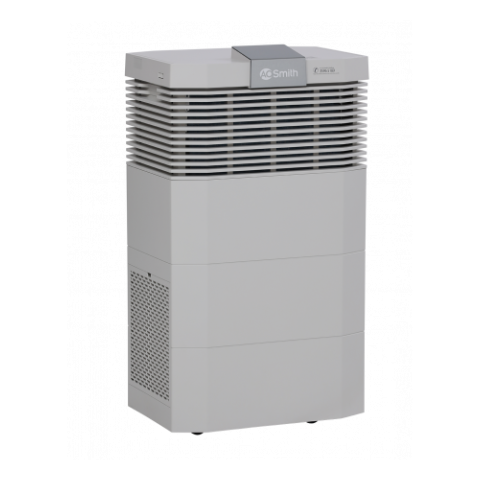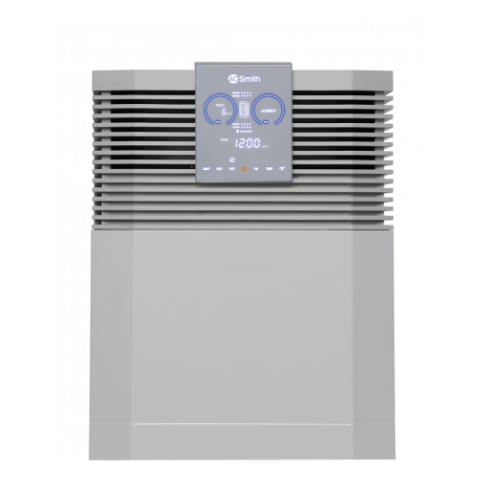Interest in HEPA air purifiers are gaining traction among people wanting to protect themselves against the Covid-19 pandemic. Earlier in 2020, AO Smith even donated 2000 air purifiers to hospitals in China to help contain the outbreak. How do HEPA air purifiers capture airborne contaminants and can it really protect you against Covid-19?
Covid-19 particles: How big is it and how do they travel?
Like most types of coronavirus, COVID-19 particles are approximately 0.125 microns in diameter. The virus often travels in the form of aerosols droplets that are expelled when someone coughs or sneezes.
Aerosol droplets containing the coronavirus can range from 0.5 to 3 microns in diameter and could linger in the air for half an hour before drifting down and settling on surfaces where they could last for several days. Once the aerosol settles on a surface it can no longer be processed by an air purifier.
What are HEPA air purifiers and how do they capture particles?
High Efficiency Particulate Air or HEPA filters are mechanically pleated filters that are extremely effective at trapping and removing airborne particles, microorganisms and other contaminants from the air.
HEPA filters are rated to capture particles of the most penetrating particle size, 0.3 microns, with 99.97% efficiency. Meanwhile, particles that are smaller or larger than 0.3 microns are removed with higher efficiency.
Biological aerosols are captured by HEPA filters using these methods
Diffusion: Since smaller and finer particles tend to move more erratically (this is called Brownian Motion) they are more likely to be captured by the fibers.
Impacting: Larger particles tend to travel on a straight path so they are more likely to be captured by the fibers' maze-like configuration.
Interception: Airflow can help particles pass through fibers, but because of inertia, they end up sticking to the sides of the fibers.
Sieving: If the particles being carried by an air stream are larger than the gap between two fibers; they are captured
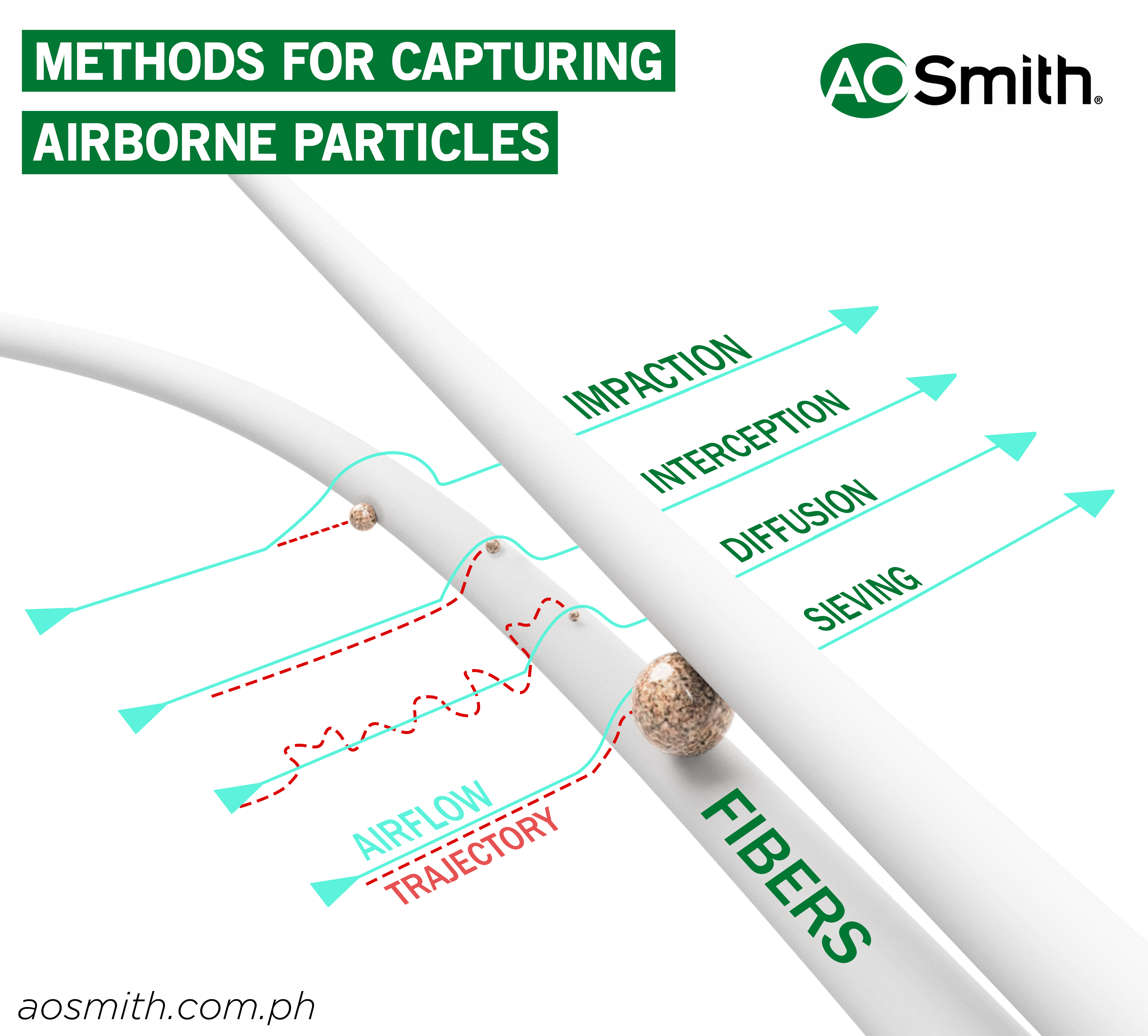
![]()
HEPA air purifiers vs. KN95 and N95 face masks
N95 and KN95 masks are 95% efficient at capturing particles 0.3 microns in diameter meaning 5% pass through the protection. In comparison, HEPA air purifiers are 99.97% efficient at capturing particles of 0.3 microns and are more effective than face masks.
For reference, aerosol droplets containing the virus can range from 0.5 to 3 microns in diameter which are significantly bigger than the most penetrating particle size of 0.3 microns.
HEPA air purifiers vs Covid-19
Hospitals have been using HEPA air purifiers in their facilities to help capture airborne hazards, including viruses, even before the Covid-19 pandemic hit.
HEPA air purifiers are indeed capable of removing biological aerosols since the size of these particles are well within the range of what HEPA can capture but it is important to note that some virus particles will inevitably pass through any HEPA filter since no HEPA filter is 100% efficient.
HEPA air purifiers can help capture biological aerosols
While HEPA filters are indeed proven to be able to capture biological aerosols, it is best to use them in conjunction with other safety pre-cautions to maximize its effectiveness.
Remember that viruses need only a small amount to enter your body to trigger an infection. You can protect yourself from the particles that might pass through a HEPA air purifier by wearing a mask and practicing preventive measures such as social distancing and hand washing

